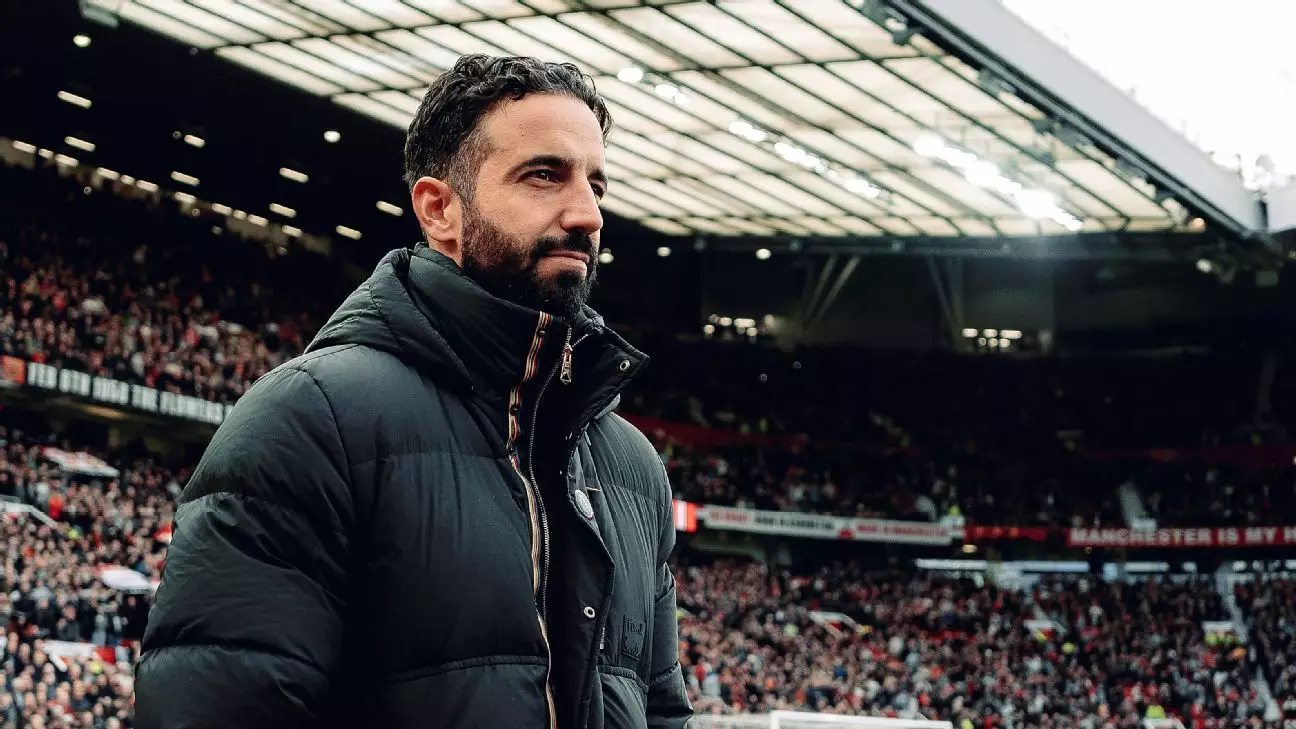The journey of a football manager often resembles a roller coaster, filled with unpredictable twists and turns. When Ruben Amorim stepped into his role as Manchester United’s head coach, the initial excitement felt like a sunny day in November. However, the reality quickly set in as rapid changes and emerging challenges overshadowed this positivity.
On his arrival at Carrington, Amorim exhibited an air of optimism, greeted by high-ranking officials of the club. However, as he embarked on his journey with United, the metaphorical clouds began to gather. The radiant welcome soon gave way to a more familiar winter gloom, encapsulating not only the weather but also the vibes of the club’s current situation. His first press conference showcased the stark contrast; where he once expressed hope, he now faced queries regarding a mounting crisis. In just a month, Amorim had to navigate a host of unsettling circumstances—succession issues, conflicting viewpoints on LGBTQ+ initiatives, and the pressing matter of ticket price hikes—challenges that all fall under the broader struggle of revitalizing an underperforming squad.
Having inherited a team lingering in the shadows of its once glorious past, Amorim’s remit was not just to win matches but to restore confidence and belief within a fractured unit. The upcoming busy festive schedule, including nine matches in December, would exponentially increase pressure on him and the team. Furthermore, the coaching strategies he had crafted at Sporting CP now required rapid adaptation to align with an English footballing context. Reporting suggests that Amorim already feels the enormity of the task has exceeded initial expectations, depicting the high stakes that come with managing a club of Manchester United’s stature.
Early reports indicate that Amorim employs unique training approaches in an attempt to breed unity and tactical awareness within a condensed timeframe. Unlike previous regimes, he has adopted comprehensive tactical sessions where players participate collectively in learning different phases of the game. This approach reflects his philosophy of shared responsibility; he endorses the notion that the squad either moves forward together or not at all. Furthermore, his decisions to downplay strictly regulated team protocols showcase a refreshing take, capturing a spirit of resilience among his players—evident when the squad collectively opted out of wearing LGBTQ+ jackets due to their shared beliefs.
As the urgency grew, Amorim’s confidence in his team became apparent when he addressed criticisms surrounding their performance. He openly declared his belief in the players, which, while commendable, speaks to the duality of managing a team under immense scrutiny: balancing belief with tangible success.
Amorim’s personal history as a player informs his management style, particularly in establishing strong interpersonal relationships with the squad. He has shown a keen interest in the players’ lives beyond the pitch, a purposeful gesture to foster loyalty and togetherness. His unorthodox methods, such as allowing players to self-initiate post-match discussions, underline a refreshing approach to leadership, enabling players to reflect creatively rather than confronting them immediately after match conclusions.
Still, in his effort to maintain camaraderie, he retains the authoritative stance inherent within a managerial role—lamenting a lack of preparedness from substitutes during games, for instance. This blend of compassion and strictness could either solidify his rapport with the players or lead to friction if mismanaged.
Entering the Christmas fixture list, Amorim is acutely aware of the pitfalls that have previously plagued managers at United—especially concerning player fitness and team burnout. He balances intensive training sessions and performance data analytics to prevent injuries that could derail his fledgling campaign. In an era where the rigors of the football calendar could easily overwhelm less-prepared teams, managing player fitness and morale remains paramount.
These strategies will be critical not only in maintaining performance levels but also in leading the team confidently through a pivotal month.
Ruben Amorim’s first month as the Manchester United head coach illustrates the turbulence and excitement inherent in football management. While the ill winds of poor performance and mounting pressure provide a challenging backdrop, his innovative approach, interpersonal connections, and faith in the players could potentially be the linchpins for the club’s revival. The upcoming months stand as a testament to his resolve. With hard work, resilience, and perhaps a sprinkling of good fortune, Amorim may yet transform Manchester United’s fortunes, steering the club through the storm toward brighter days.

